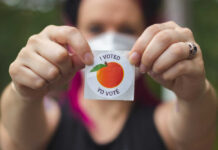
They are trying really hard folks, like really hard.
The World Health Organization (WHO) announced that a 59-year-old resident of Mexico succumbed to the first laboratory-confirmed human case of infection with the A(H5N2) subtype of avian influenza. This tragic incident, which took place on April 24, marks a global first for human infection with this particular strain and the initial H5 virus infection reported in a person in Mexico.
The victim experienced a range of severe symptoms, including fever, shortness of breath, diarrhea, nausea, and general discomfort. Despite these symptoms, WHO noted that the individual had no history of exposure to poultry or other animals, a common source of bird flu infections. This raises questions about how the virus was contracted. Notably, cases of the A(H5N2) subtype have been reported in poultry within Mexico, though no direct link to this case has been established.
Further complicating the situation, the patient had multiple underlying health conditions and had been bedridden for three weeks before the acute symptoms emerged. So the guy got the flu and died because he was already ill.
Amidst this development, Deborah Birx is back and voiced her concerns about the current handling of the bird flu in the United States. Speaking to CNN’s Kasie Hunt, Birx warned that the country is repeating mistakes made during the early stages of the COVID-19 pandemic, particularly in terms of testing and identifying asymptomatic cases.
A couple of allotments I have gathered out here are 50,000 acres. Margins are already thin for cow calf guys so forgetting the absurdity of gathering, corralling, and running a 1,000 pairs through a chute once a week, this would bankrupt even the biggest family ranch. https://t.co/YkOqkGSmPL
— Braxton McCoy (@braxton_mccoy) June 5, 2024
Birx emphasized the need for widespread testing to uncover the true extent of the virus’s spread. She highlighted the fact that without comprehensive testing, many asymptomatic infections may go undetected, potentially leading to a silent spread of the virus. Drawing parallels to the COVID-19 pandemic, she stressed the importance of proactive measures to prevent a similar scenario.
The CDC maintains that the current public health risk from bird flu remains low but assures that the situation is being closely monitored. Birx, however, argues for more stringent testing protocols, particularly for dairy farm workers who are at higher risk of exposure.






















